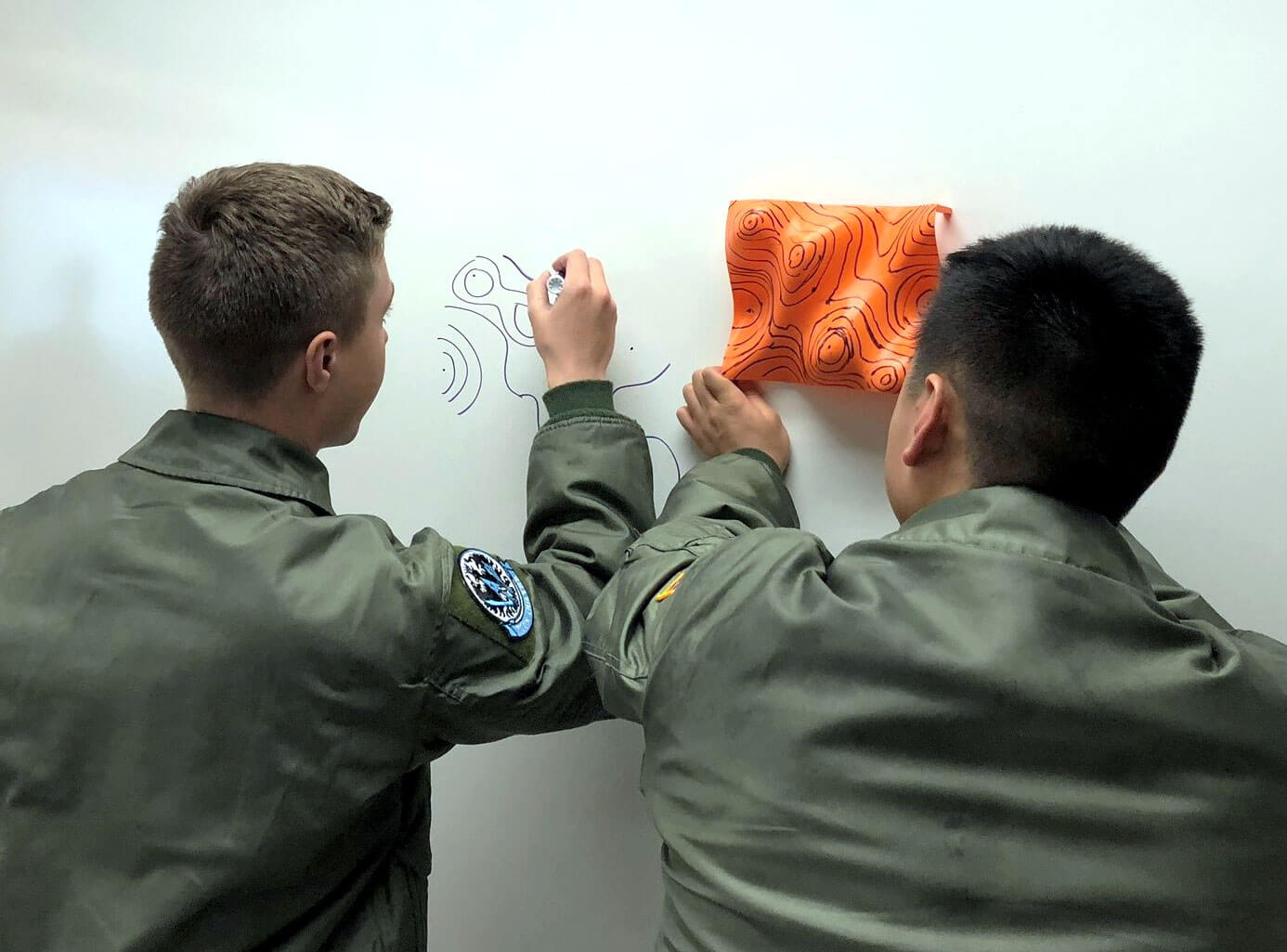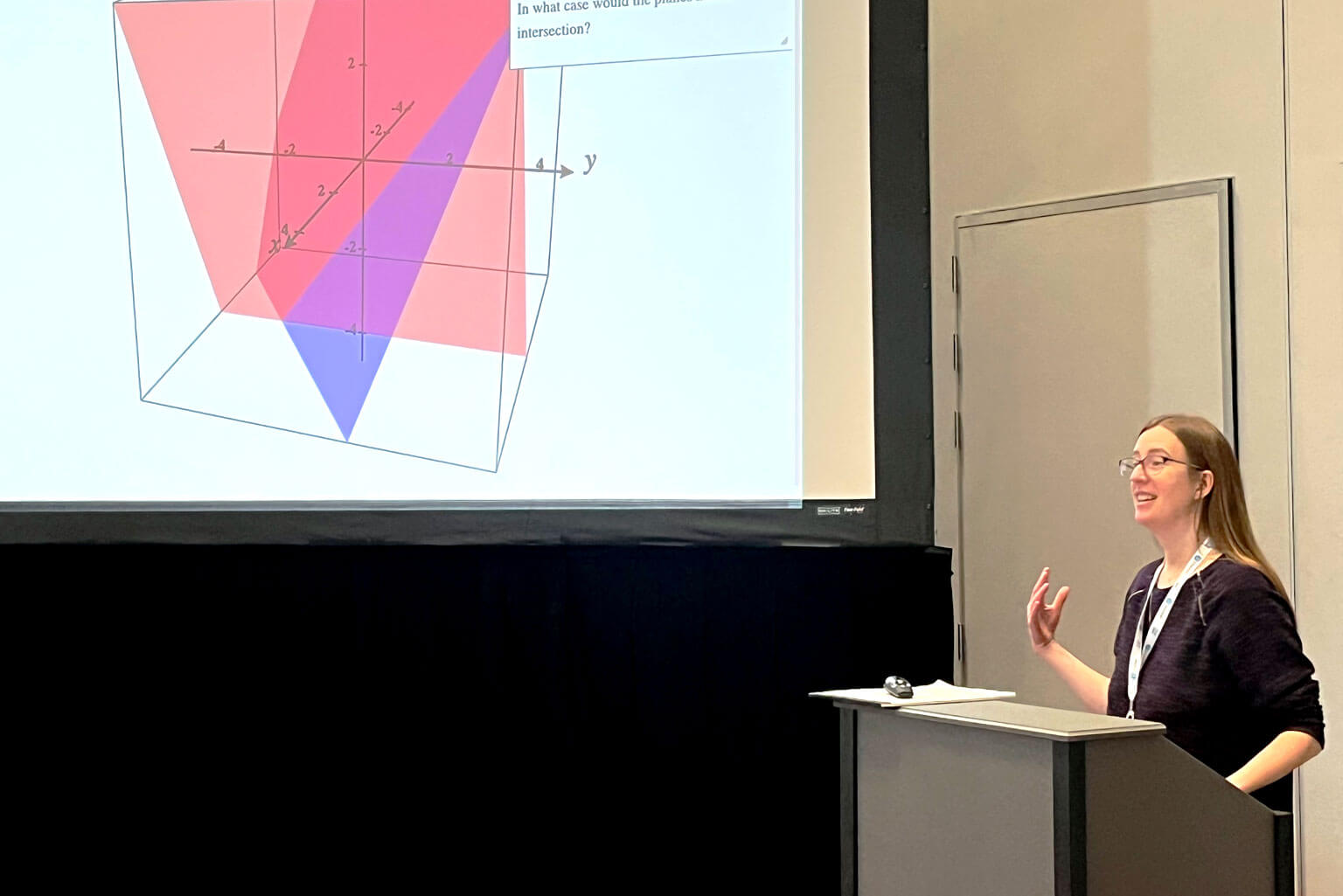Award-winning professor employs novel teaching methods

Cadets learn using a 3D model developed by Dr. Shelby Stanhope, a Mathematical Sciences associate professor at the U.S. Air Force Academy, Colo. (Courtesy photo.)
By Katherine Spessa
U.S. Air Force Academy Strategic Communications
U.S. AIR FORCE ACADEMY, Colo. – When Dr. Shelby Stanhope first took up an associate professor position at the U.S. Air Force Academy, Multivariable Calculus was infamous.
What is called a “barrier course” for cadets interested in STEM disciplines, Col. Scott Williams, the Academy’s Department of Mathematical Sciences head, said Calculus 3 was a make-or-break point in a STEM major’s academic career and would often determine if they could stay on a STEM track.
Enter Stanhope.
“Previously, students were coming out of basic training and were already not wanting to pursue a STEM major because they had heard about Calculus 3,” she said. “When I first arrived in 2018, I really wanted to understand that. I asked to teach the course.”
After implementing a series of changes to the course, including computer visualization, low-stakes activities and 3D models, they noticed a substantial difference in student understanding and mastery of the material. The withdrawal rate went from 15% to 6%, the failure rate decreased from 5% to 2%; and enrollment increased by nearly 20%.
Learning and innovation
The freedom to develop innovative teaching methods is what first drew Stanhope to the Academy.
“I knew I wanted to focus on an institution that valued teaching over everything else,” she said. “The Academy really values evidence-based teaching practices, and they support instructors who want to implement that in their classrooms.”
When she came to the Academy after Temple University in Pennsylvania, it proved to be a match made in heaven.

Dr. Shelby Stanhope, Mathematical Sciences associate professor, teaches using a computer visualization program to improve students’ understanding of multivariable calculus at the U.S. Air Force Academy, Colo. (Courtesy photo)
“We emphasize a focus on student learning and using pedagogical approaches that help students learn,” said Williams. “Lecture is kind of a bad word – we don’t lecture; we involve students in activities that are built to be engaging and enhance opportunities to learn.
“Shelby, even before she got here, we could tell that she really embraced that philosophy.”
“The other thing we really emphasize is innovation in the classroom,” Williams said. “She has embraced that wholeheartedly with her willingness to experiment and try things that have the opportunity to help with student learning.”
Award-winning professor
Stanhope was recently honored by the Mathematical Association of America with the Henry L. Alder Award for Distinguished Teaching for her innovative and passionate approach to teaching. The award is meant to recognize university faculty who have been “extraordinarily successful and whose effectiveness in teaching undergraduate mathematics is shown to have influence beyond their own classrooms.”
“Her passion, her desire when she steps into the classroom is to figure out how to make students successful, and she really puts that into everything that she does, which is evident in her impact on the faculty,” said Williams. “They see that passion, innovation and creativity, and it rubs off on them. People are always bouncing ideas off each other and looking for ways to help students access materials better, and she is at the forefront of that.”